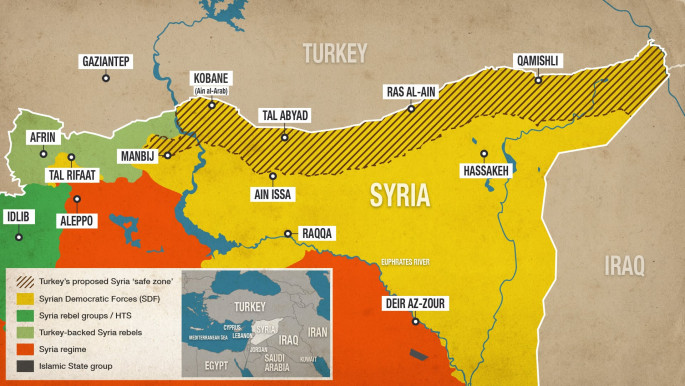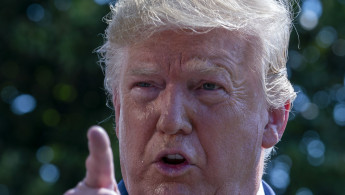Trump authorises sanctions, slaps steel tariffs on Turkey
US President Donald Trump on Tuesday authorised sanctions on Turkey's leaders, reimposed steel tariffs and ended trade negotiations to protest Ankara's offensive into Syria.
"I am fully prepared to swiftly destroy Turkey's economy if Turkish leaders continue down this dangerous and destructive path," Trump said in a statement.
The president said he had issued an executive order to allow sanctions on sitting and former Turkish officials - although he has apparently not yet imposed them - and was immediately ending talks on a US-Turkey trade deal.
He said he was reimposing 50 percent tariffs on Turkish steel - one of a series of measures used last year to win the release of a detained US pastor which contributed to a plunge in the value of the country's lira currency.
In May, Trump reduced tariffs back to 25 percent - in line with levels the protectionist-minded president has imposed on other trading partners including the European Union.
Trump has come under heavy criticism at home for appearing to give his blessing to President Recep Tayyip Erdogan, who links Syrian Kurdish fighters to separatist militants at home.
Twitter Post
|
Less than an hour before the statement, Trump was on Twitter defending a hands-off stance, saying that Syria's Kurds were not the business of the United States and that anyone was welcome to assist them "whether it is Russia, China or Napoleon Bonaparte."
But he took action a day before the US Congress is set to return to session, with lawmakers across party lines deploring what they see as an abandonment of Kurdish allies who fought to destroy the Islamic State group.
In the statement, Trump said Turkey had not mitigated the humanitarian impact of its operation against Syrian Kurdish fighters.
"I have been perfectly clear with President Erdogan: Turkey's action is precipitating a humanitarian crisis and setting conditions for possible war crimes," he said.
"Turkey must ensure the safety of civilians, including religious and ethnic minorities, and is now, or may be in the future, responsible for the ongoing detention of ISIS terrorists in the region," he said.





 Follow the Middle East's top stories in English at The New Arab on Google News
Follow the Middle East's top stories in English at The New Arab on Google News

![MP Essam Diab's pursuit to block TikTok in Egypt has revived an already ongoing debate in the country. [Getty]](/sites/default/files/styles/image_330x185/public/1230748046.jpeg?h=a5f2f23a&itok=-8MqBLLC)
